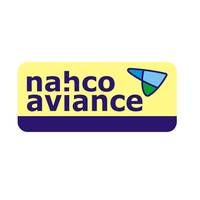Africa: NAHCO Invests In Export Strategy
- Client Site Administrator
- Jan 8, 2024
- 3 min read

Indranil Gupta, NahcoAviance’s GMD, actively advocates for exports to counter Nigeria’s excessive import reliance, exceeding 95%.
Expressing concern over this import-heavy trend, Gupta envisions reversing it by tapping into Nigeria’s agricultural prowess.
Referring to Nigeria as the continent’s breadbasket, Gupta highlights its fertile land and farming potential, emphasising the need for strategic marketing.
"Nigeria can be the continent’s breadbasket. Producers must recognize the rich potentials in both intercontinental and intracontinental trade." Gupta said.
Similarly, he identifies a crucial export hurdle – connecting farmers and middlemen to the right markets, emphasizing a vision for intracontinental trade.
Gupta, aligned with the board and management, prioritizes linking farmers and middlemen to markets, steering NAHCO toward export dominance.
“Our cargo is nearly 95% import-dependent, tying us to the country’s economic capabilities. Exporting earns dollars, providing foreign exchange, a more advantageous approach for the nation.” He said.
Moreover, Gupta reveals NahcoAviance’s plan to invest in cargo export, allocating a billion naira to this initiative, focusing on five major airports.
However, he pragmatically notes that Nahco is a business and will assess the pilot project in Lagos before expanding to other locations.
Prince Saheed Lasisi, Head of Commercial & Business Development, highlights training in the UK to facilitate the acceptance of Nigerian produce.
Lasisi further emphasizes the importance of proper packaging, ensuring compliance with international standards and avoiding embargoes on Nigerian exports.
Our View
A great vision by a versatile international executive that joined NAHCO in late 2021; some would argue that he is still in his honey moon period and whilst he has passion for the sector, he is missing some fundamental points that could prove costly to the NAHCO business.
Nigeria is and has been a net importer for basic food commodities for a number of decades and our analytics department (dre aviation Analytics) forecast this to be the case for a number of more decades to come; some of the reasons for this we highlight below (detailed analysis and advisory is available for clients and premium subscribers);
High rate of food inflation; in the current economic turmoil the majority of Nigerians are struggling to feed themselves as the costs of basic food ingredients continues to soar, so how can a nation export when they are struggling to even provide for their current citizens? surely exports will make the food commodities in Nigeria more scarce and push up prices further?
Lack of trust - there have been so many examples of lack of qualitative integrity of Nigerian products in the international market place - quality standards are low due to lack of investment in technology, infrastructure, hygiene and best practises.
They have been placing alot of emphasis on packing - this is misplaced emphasis, the emphasis should be on the quality of the product as this is the product you are exporting.
Nigeria needs to become more self sufficient first before it can export, domestic production needs stimulus from the central government, an effective policy and incentivisation for investment and production in Nigeria - this should be at the central level and not lead by an export processing centre.
The old adage in Africa is build it and they will come..... in business this is a poor investment rational and this export vision is too premature.
A macro analysis of the situation in Nigeria is required to understand what is happening in the economy, especially after the exit of some MNCs of late eg, PZ Cussons and GSK, there are massive headwinds to setting up (or as the examples have articulated) continuing to do business in Nigeria. Hence, the government need to fix critical business fundamentals for domestic production and consumption before we can even begin to talk about exports. Therefore, we reiterate this strategy is premature.
1bn Naira isn't what it used to be (due to constant currency devaluation) so the exposure for this initiative so far is limited, however, NAHCO may have taken it's eye off it's fundamental business - ground handling and cargo warehouse processing.
As above, NAHCO recently lost one of it's premium clients to it's duopoly competitor - SAHCOL. This is a major red flag for industry watchers - once you lose key clients due to losing focus on your core business - it puts the whole business strategy into focus.
We believe that NAHCO needs to fix it's current internal issues - import cargo is a disaster - processes are slow and mundane, corruption and extrortion is high, inefficiencies are eye watering and customer service needs a serious overhaul, all of these are key in ground handling.
NAHCO need to fix the fundamentals of their business before diversifying further.
For a more detailed conversation about the ground handling environment in Nigeria, strategies and this particular topic please get intouch.
Premium clients and investment anlaysts please contact your dedicated client manager for our our full report on this latest update from NAHCO.
Ends.
dre aviation
dre aviation Analytics
dre aviation Nigeria
London






















Comments